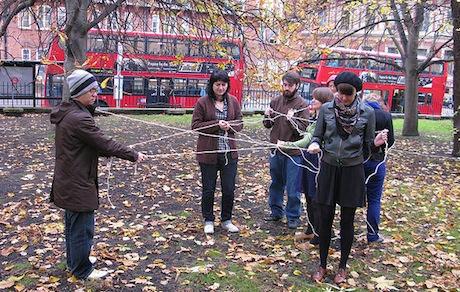Using Social and Mobile in Retail
Social networks existed long before Facebook and Twitter. Originally it was just as the organic ties between organisations or individuals; today it’s the same structure, the same dynamics but super-charged by virtue of the digital technology now available!
What Messrs. Zuckerberg & Co. brought to the party are the tools, metrics and case studies necessary to understand how social leaders influence each other within these social and professional networks, and how these relationships can be used to disrupt conventional attitudes and behaviour.
Using social media to help increase retail sales is not a new idea. Every branch of Debenhams’ [a chain of UK department stores] and just about every independent store has a Facebook Page. But retailers should beware: you don’t want to be pumping out sales messages all day, every day into the social media atmosphere like some online version of the global warming. It is a privilege for a brand to be invited into a social network (maybe less so than in the past, but the principle still holds). However, it’s all-too easy for a brand to outstay its welcome. Going back to the initial social theory, retailers are attempting to upset the established order. They are trying to become influencers by using Social Networks (in the modern meaning of the term).
It’s hard not to be aware of the statistics proclaiming the continuous growth in online sales. The relationship between online sales and social seems a far more natural fit. Online retail sales increased by 14% last year to more than £50bn, with predictions that the growth will continue to hit high streets, according to a new report.
We also understand the crucial importance of opinion leaders and recommendations within our social networks - with over 40% of men and more than a third of women more likely to purchase something if a friend has recommended it on a social network.
So how do we create a strong influence and connection between retail and social? Almost 90% of consumers who buy in-store in key retail categories have conducted online research prior to making their purchase.
Pinterest is one of the best social networks for retailers who want to engage with customers via social media at the critical research stage of the buying cycle. And after it's initial success and continued meteoric growth it is now becoming a part of companies’ social marketing strategies. Savvy retailers who want to maximise the benefit of their Pinterest account should first identify the users that are also top pinners (whether they are pinning your product or just the right topic, there are a number of tools out there to help with this). Carefully targeted and relevant rewards that support your brand values and overall marketing strategy should then be used to incentivise these users to nudge other Pinterest users to your brand.
By creating catalogues of pin boards and pins based on and around your product, you can create valuable two-way communication. Retail brands should add prices to their products on Pinterest to attract qualified buyers. Give your followers a mix of lifestyle pins and product pins to increase lead generation while maintaining engagement.
Ideeli, an online discount provider, reported web traffic has increased by 446% and sales five-fold as a result of using Pinterest as part of their marketing strategy.
A recent Guardian report said that "social can be used to create a community, generate engagement and drive sales. Social commerce does exist. However, people need the right social environment to engage with a brand and then be encouraged to buy its product". It’s only now are we starting to see retailers developing truly social strategies.
So what is the missing link between social and retail? In my opinion it is mobile. The iPhone in your hand is the most significant screen in your life: it’s where you connect with your friends, get news about the world and it’s the first place you look when choosing where to shop and what to buy. Mobile payments, mobile coupons and vouchers, geo-location and marketing push are all game-changing strategies that mobile enables better than any other channel or platform. This is the most effective way to get online customers and new customers into your store. All marketing efforts for retailers should consider the effect and power of mobile.
Photo (cc) Cesar Harada



Comments
Is that a pentagram?
That looks strangely like a pentagram that you guys were making.